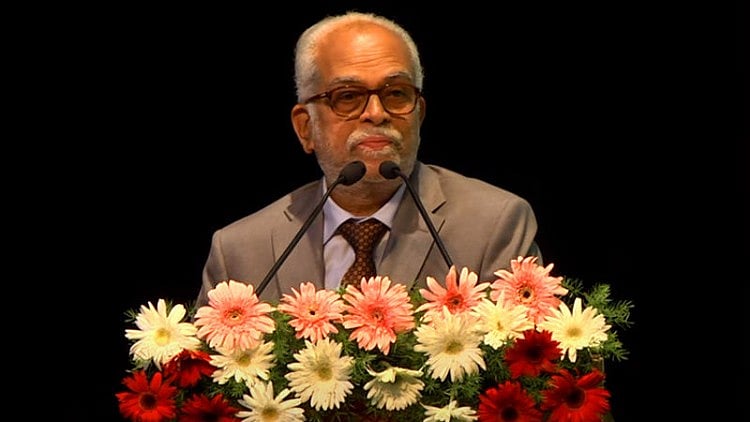
B Sudershan Reddy is I.N.D.I.A. bloc's surprise pick for vice-presidential polls.
Credit: X
Hyderabad: Former Supreme Court judge Justice (Retd) Bommagani Sudershan Reddy, picked by the I.N.D.I.A. bloc as their vice-presidential candidate, has earned widespread recognition as an independent-minded jurist throughout his judicial career. Even after retirement, he has remained a vocal advocate for human rights and judicial reforms in India.
Following his retirement, he has remained actively engaged in social issues, collaborating with various public organisations based in Hyderabad. His advocacy has extended to opposing extrajudicial killings, as demonstrated during his public criticism of the Disha encounter, while simultaneously calling for comprehensive judicial system reforms.
Most recently, Reddy chaired the Independent Expert Working Group (IEWG) appointed by the Telangana Congress government to analyse the state's Socio-Economic, Education, Employment, Political and Caste Survey (SEEEPC survey). In July, he submitted a comprehensive 300-page report to the government, contributing his expertise to this significant social documentation effort.
Born into a farming family on July 8, 1946, in Akula Mylaram village in what was then Ibrahimpatnam Taluk (now Kandukur Mandal) of Ranga Reddy district, Telangana, Justice Sudershan Reddy has been a steadfast champion of human rights. His commitment to justice was evident when he strongly criticized the controversial Disha encounters in 2019, in which four accused were killed by police.
Justice Reddy's tenure in the Supreme Court is marked by several significant rulings that demonstrate his judicial integrity
In 2011, he ordered the creation of a Special Investigation Team to investigate black money stashed abroad, delivering sharp criticism of government inaction on the issue.
In 2011 his bench declared the Chhattisgarh government's use of armed tribal youth as "Special Police Officers" under the Salwa Judum programme unconstitutional, ruling it a violation of fundamental rights, a decision widely regarded as a testament to his judicial integrity.
In Ambani family Gas Dispute in 2010 as part of the Constitution Bench, he ruled that natural gas is a national asset under government control, superseding private agreements.
Justice Sudershan Reddy completed his education in Hyderabad and obtained his LLB degree from Osmania University in 1971. He enrolled as an advocate with the Bar Council of Andhra Pradesh the same year and began his practice under the mentorship of K Pratap Reddy, Senior Advocate of the Andhra Pradesh High Court, specializing in civil and constitutional matters.
His career progression included several key positions like government pleader in the Andhra Pradesh High Court (August 1988 to January 1990), handling the Revenue Department; Additional Standing Counsel for the Central Government; and Legal Advisor and Standing Counsel for Osmania University from January 1993. In 1993-94, he was elected President of the Andhra Pradesh High Court Advocates' Association.
Justice Reddy's judicial journey began when he was elevated as Additional Judge of the Andhra Pradesh High Court on May 2, 1995, and confirmed as a permanent judge later that year. His exemplary service led to his appointment as Chief Justice of the Gauhati High Court on December 5, 2005.
On January 12, 2007, he was elevated to the Supreme Court of India, where he served with distinction until his retirement on July 8, 2011.
In March 2013, Justice Reddy was appointed as Goa's first Lokayukta, a position created to investigate corruption in public offices. However, he resigned in October 2013, citing personal reasons and concerns over institutional limitations.